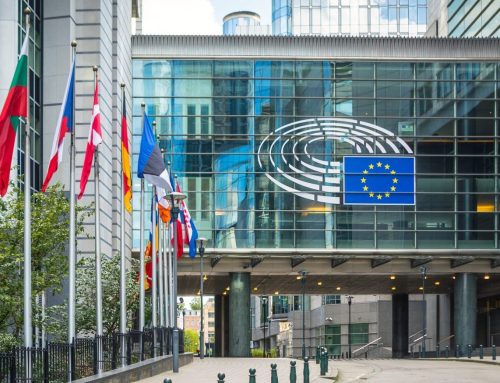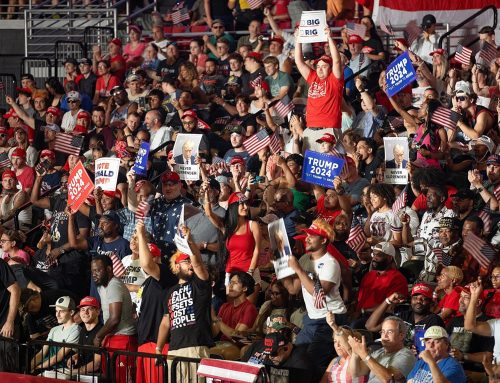Hamilton 2.0 is an interactive tool that monitors the outputs of Chinese and Russian state media and government officials across a range of social media platforms. The weekly report provides a summary analysis of the most salient topics and narratives promoted by state-backed actors during the specified date range.
Russia
Monitored Russian accounts tweeted 16,051 times from January 11 to January 17, generating 112,703 retweets and 390,259 likes.
War in Ukraine
Kremlin-linked media shared a range of theories about a helicopter crash near Kyiv that killed more than a dozen people, including Ukraine’s minister of internal affairs. The crash happened outside of the timeframe for this report, but ASD found Russian outlets blaming Ukraine for shooting down the helicopter, claiming that the French-made helicopter was poorly made, and arguing that Ukraine shouldn’t have flown over such a populated area in the first place.
Russian state media and diplomats also blamed Ukraine for an attack that killed at least 40 people in an apartment complex in the Ukrainian city of Dnipro. Kremlin-affiliated accounts seized on a statement by one of Ukrainian President Volodymyr Zelensky’s advisers, who said the casualties were caused by a Ukrainian air defense missile. That advisor, Oleksiy Arestovych, later resigned. State media contributors asserted that Aresovych made the statement and stepped down because the “Kiev clown car is heading off a cliff” and he has “aspirations to run the country in the future.” The site SouthFront, which is linked to Russian intelligence, suggested that Ukraine deliberately struck the apartment complex to elicit more aid from the West.
Meanwhile, state media and officials celebrated Russia’s “liberation” of the small town of Soledar in eastern Ukraine. SouthFront asserted that Russia’s gains in Soledar showed how it “controls the conflict,” while Sputnik host George Galloway retweeted a post that said it represented a Russian victory over all of NATO. In an unusual move, Kremlin-linked accounts emphasized the Russian military’s brutality in Soledar and the Wagner Group’s role in the fighting. RT ran a headline that included, “the entire town is littered with bodies.” Other outlets published interviews with Yevgeny Prigozhin, the head of the Wagner private military group. Russian diplomats and media also spread claims that Ukraine had used chemical weapons in Soledar.
Finally, state media covered President Vladimir Putin’s decision to enlarge the military to 1.5 million people. The Kremlin said that the West’s actions had forced Russia’s build up, which will take place between 2023 and 2026. That plan also includes improving systems around weapons deliveries, troop deployments, and the construction of training grounds. Moscow also tried to squash rumors that the build up would require a new round of mobilization.
Biden’s classified documents
Russian media bashed US President Joe Biden as new details emerged about his alleged mishandling of classified documents. Kremlin-linked accounts amplified Republican lawmakers and far-right media personalities that criticized Biden. Sputnik echoed accusations that Biden was refusing to be transparent with investigators. State-backed accounts also joked about the situation. The embassy in Spain asked, “have we not yet been charged with finding secret documents in Biden’s garage?” A handful of outlets picked up claims by the controversial CIA whistleblower Ed Snowden, who argued that he had been more careful with classified intelligence than the president. NewsFront spread disinformation that tied Hunter Biden’s potential access to the documents with an alleged money laundering scheme involving businesses in Ukraine and China. And Renegade Inc asserted that the document scandal signaled that the “regime seems to be finished with Joe Biden” and asked, “who will the deep state install next?”
Davos
Russia-affiliated accounts criticized the World Economic Forum’s meeting in Davos, Switzerland. Russia’s Embassy in Cuba retweeted a post that claimed it was a gathering of the “ideologues of world capitalist terrorism.” One RT contributor retweeted a post that called Davos attendees “totalitarians” and warned that the group would “decide our future if we don’t do something about it.” Multiple accounts said that escort agencies had been “booked solid” for the event. RT repeated warnings that women should not attend the forum alone because of the risk of sexual assault. State media also highlighted the climate impact of private jets used to take people to the event.
China
Monitored Chinese accounts tweeted 16,862 times from January 11 to January 17, pulling in 70,437 retweets and 259,114 likes.
Covid here to stay
With China still struggling to keep case numbers under control after its sudden about-turn on Covid restrictions, the disease remained one of the main topics covered by Chinese diplomats and state media last week. “Covid” was the second most frequent key phrase, while “COVID19” and “COVID” were respectively the second and seventh most frequent hashtag. State media outlets were far more active on the issue, with almost three quarters of the Chinese network’s tweets mentioning variations of the term “covid” published by state media-affiliated accounts rather than diplomats.
Much of the messaging focused on how well the country was handling the pandemic, with CGTN experts suggesting that the surge in infections was a positive and Global Times quoting “netizens” praising China’s ability to produce medical equipment quickly. The strength of the Chinese economy was a recurring theme, with the consul general in Zurich relaying upbeat growth numbers and Xinhua describing foreign business’ optimism over China’s economic outlook.
As was the case the week prior, another strand of Chinese messaging around covid was more defensive, with China Daily implicitly pushing back against accusations that the government is undercounting the number of covid-related deaths and the Ministry of Foreign Affairs (MFA) pointing to the spread of variant XBB.1.5 in the United States as the real threat to global health. Japan and South Korea also drew the ire of “wolf warrior” diplomats like the consul general in Belfast and Pakistan-based Zhang Heqing over their decision to ban Chinese travelers.
Displeasure with democracies
Japan’s ban on Chinese travelers was one of many issues that landed Japan in hot waters with Chinese diplomats and state media last week. The country was the third most mentioned country in tweets from the Chinese network monitored on Hamilton 2.0, behind China and the United States. The three most retweeted Chinese tweets mentioning Japan were from the consul general in Belfast, who amplified a Global Times threat that Japan may well become the “Ukraine of East Asia” if it continued to “stir up trouble,” a People’s Daily tweet commemorating a victim of the Nanjing massacre, and the MFA warning against Japan’s rearmament. Other instances of aggressive rhetoric from the Chinese side included the consul general in Osaka musing about an old speech describing Japan as a “hawkish dog” of Western imperialism and China Daily’s Chen Weihua quipping that Japan’s foreign policy was “made in Washington.”
Japan was not the only target of Chinese rhetoric. The ambassador to the United Nations asked on Friday “who creates [the] rules” of the international system, with the MFA, a few days later, urging the United States to stop “trampling the international rule of law.” Assistant foreign minister Hua Chunying used a video of a violent arrest of a black man in the United States to once again accuse the United States of hypocrisy over human rights. CGTN commentator Li Jingling derided the country’s interventionist foreign policy in Latin America and promoted a speech from Venezuelan president Maduro quoting Xi Jinping. Moving to the other side of the Atlantic, China Daily’s Chen Weihua replied to a tweet from EU head Ursula von der Leyen about Europe standing up to authoritarianism by deriding her “narcissism [as] a mental illness.”
Qin Gang in Africa
Foreign Minister Qin Gang’s tour through Africa also drew a significant level of attention from Chinese diplomats and state media last week. China’s key message to the continent was that Africa should not be “a wrestling ground for major-power rivalry.” That message was relayed, among others, by the embassy in Eritrea, the former ambassador to the African Union, the consul general in Santa Cruz, Bolivia, and the consul general in Osaka. More broadly, Chinese diplomats were advertising China’s work on the African continent throughout the week. For instance, the embassy in Kenya praised the progress on a new Chinese-built CDC building in Ethiopia, the ambassy in Zimbabwe amplified Qin Gang’s talking points on development, and Hua Chunying boasted about the “unbreakable” friendship between China and Egypt.
The views expressed in GMF publications and commentary are the views of the author alone.







